Very successful launch of Experientia’s Talking Design lecture series
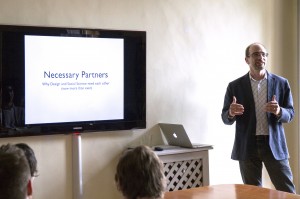
On Wednesday evening about 20 guests and 30 Experientia staff maxed out our little conference room to attend our very first Talking Design lecture and listen to Intel anthropologist Todd Harple, who spoke about why design and social sciences need each other, now more than ever (see also links below).
The “Talking Design†guest speaker evenings are part of our drive to bring the design world to Turin. Harple inaugurated what we plan to make a long series of talks from global experts in the industry, who will share their experiences and knowledge with the staff and friends of Experientia.
A good aperitivo afterwards (a much lauded Piedmont tradition!) allowed for informal conversation and networking.
Todd Harple, who has a PhD in anthropology, is an Experience Engineer and Strategist at Intel Corporation, and is currently on sabbatical at the International Training Centre of the ILO in Turin.
We will soon let you know about the second speaker in the series, and the location (which we may have to change, due to the success of our first talk). We also plan to video record the next talk so that we can post the lecture series also online.
Here are the links Todd provided yesterday to some background reading on the topics that he addressed during his talk:
On the heritage of design in craft
Book “Design Methods: Seeds of Human Futures“, by J. Christopher JonesFor a great review of ethnography in design and implications:
Article “Implications for Design” by Paul DourishSee Eric Dishman tell his inspirational story of data and health care as team sport:
TED Talk “Healthcare should be a team sport” by Eric DishmanCheck out CIA’s Challenges with Big Data (and notions of ownership):
GigaOM talk “The CIA’s Grand Challenges with Big Data” by Ira “Gus” Hunt, CTO of the CIAAndersen’s notion that Big Data heralds The End of Theory discussed last night:
Article “The End of Theory: The Data Deluge Makes the Scientific Method Obsolete” by Chris AndersonKate Crawford on The Hidden Biases in Big Data that we discussed last night
ArticleControversy over Google Glass we discussed last night
Article “Google Glass Picks Up Early Signal: Keep Out” by David Streitfeld in The New York TimesWill Google Glass have same effect as Bentham’s Panopticon?
Join the discussion about responsibly managing Big Data #wethedata

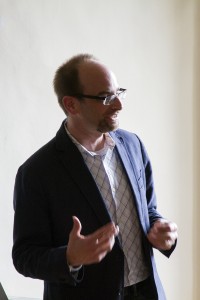
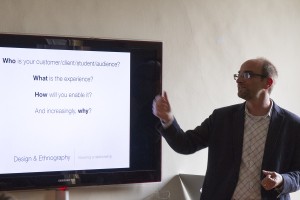
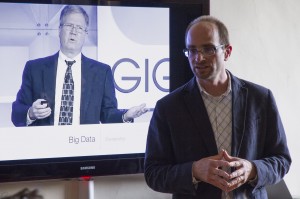
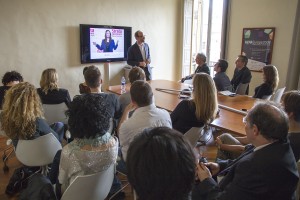
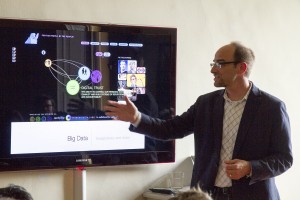
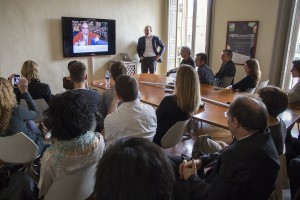
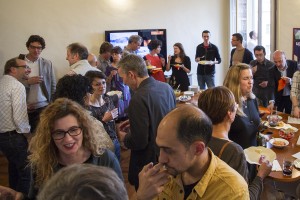
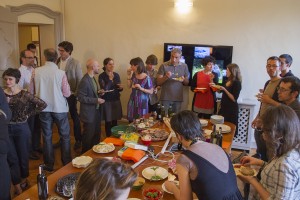
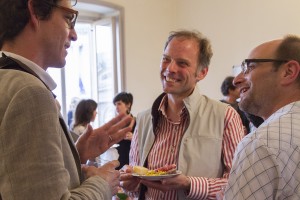



Please do record these expressions, they are important as any to describe the chaos that characterizes planning for the future, not the fault of the storyteller of course. It’s not surprising, is it, that someone who works for a very large company founded on the processing of data sees the world through a “data” filter? Even that becomes a datapoint, for someone else to process. This endless recursion is not getting us anywhere, as the most recent statistics for world population, poverty, and physical distress indicate; and as rising unemployment and social distress occupy all of our lives, if not directly, then among friends and family. And soon enough, us. One wants to throw up one’s hands, retreat inside or go on holiday, forget it all. But it won’t be forgotten. All the data in the world isn’t helping, except to more accurately measure our pain, that which can be known via data. The rest is too profound.
Actually Bob, Todd expressed a position that was very critical and concerned about “seeing the world through a ‘data’ filter”. Next time we will record the talks.
Hi Bob-
Firstly, the opinions I express here and in my talk were mine, not those of my employer, though they are of course informed by my experience as a social scientist working in technology.
The talk pointed out both the strengths of data and technology to do good (I used the example of healthcare for instance where the ability to map DNA can and is saving lives–hence the link to Eric Dishman’s talk above and another example of user generated big data like Frontline SMS enabling participation and improvement of lives in emerging contexts).
I also pointed out many things that are concerning about ‘big data’ –the problem that some (including former Wired editor in the article cited above)–suggest that big data is somehow in and of itself “truth” –a patently flawed notion as pointed out by Kate Crawford…again cited above) and that organizations like the CIA openly state a desire to capture and keep in perpetuity, all data they find–suggesting some very serious social and ethical discussions that need to happen.
Finally, the entire gist of the talk was about a call for social scientists and the design community to work harder to leverage our joint strengths to work responsibly on increasingly weighty problems that big data brings starkly to the foreground–power, access, ownership, control, and equity among them.